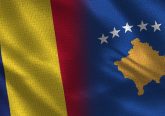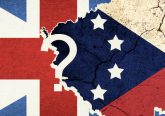
On January 12, over 1,000 Romanian citizens came out on the streets of Bucharest to protest against the resignation of Raed Arafat, the Minister of Health. Mr. Arafat’s resignation was triggered by his discontent over proposed reforms to the emergency medical system under a new health law and also as a result of criticisms from Romanian President Traian Basescu, aired on national television.
A Romanian citizen of Palestinian origins, Mr. Arafat is regarded by many as a national hero. In 1991, he created SMURD, a mobile emergency service which has thus far saved thousands of lives and is the most modern and advanced medical facility that the country possesses currently. Due to a lack of government investment and staff departures, the medical system as a whole is falling to pieces, but SMURD is an exception; it remains one of the most trusted and respected medical institutions in Romania.
The protests continued after the 12th and had an almost immediate effect. A couple of days after the protests commenced, Mr. Arafat resumed his function as Minister of Health and his demands over the new health law were respected.
But it was more than this. It was a spark that has led to a national movement. Following the January 12th protest, daily demonstrations have swept the country, with over 90,000 people coming out in 62 Romanian cities to protest not only against the government, but against the entire political establishment in the country. What happened in Bucharest unleashed an anger which has long resided in many Romanians’ hearts. But it also released a hope for a better future. In many ways, the protests have demonstrated to the Romanian political class that the people and their values cannot be trampled on and that their voices and their wishes must be heard and respected. Regardless of poverty and daily problems, Romanians will continue to stand up for honour — and for heroes like my Arafat.
Indeed, Arafat is respected widely. But, even still, the January protest took Romania by surprise. Over 1,000 people went to the Cotroceni Palace, President Basescu’s residence in Bucharest, to demand not only that Raed Arafat’s recommendations regarding the health law be respected and that he be reinstalled in his function as Minister of Health, but, even more brazenly, that the President resign.
To a Western audience 1,000 people might not seem a significant number. For a post-communist country such as Romania, it is. The January 12 protest marks the first significant popular uprising since the 1990-1991 Piata Universitatii peace protests by intellectuals and students who demanded authentic democratic reforms for the country. These movements were crushed with violence and brutality by miners recruited from the hinterlands by Ion Iliescu, the Romanian President at the time. Iliescu’s actions sent a powerful message to the Romanian public: Romanian leaders would not hesitate to crush popular uprisings through violence and force.
It was nothing new. For a people that had lived over 50 years under a repressive communist regime — where no form of protest was allowed and fear was an almost institutionalised as a way of living — enduring abuses without protesting was a way of life. Since the 1991 protests, Romania has not seen any other major public demonstration like the January 2012 movement. Silence too often allowed politicians to make important decisions without consulting the public. They acted as if they would never be accountable to the population — as if their voice never existed.
With this history in mind, to see over 1,000 people come out on to the streets to protest on a cold January night is in many ways an extraordinary event. And, more importantly, the reasons why the Romanians mobilised was truly astonishing. In Romania, there would have been arguably many other reasons that could have justified large scale anti-governmental protests. The recent austerity measures taken in Romania were more drastic than in most European countries. They include 25 percent public wage cuts and 15 percent pension cuts. Meanwhile, rampant political corruption has haunted the country since the fall of communism, and failing public services and generalized poverty affects a large part of the population.
However, the beauty of the recent protests consists precisely in the fact that these people, who have for decades been systematically deprived of their dignity, came out of honour of a national hero. He symbolises a new beginning, and furthermore, for a people often accused of bigotry, showing solidarity with a foreigner is a sign of progress.
Romanians have only begun to experience victory. And they have many demands to make. Given the over 21-year-gap in the ability to demonstrate publicly (and the government’s refusal to pay attention to their voices), the protesters remain in Bucharest’s Piata Universitatii, after an entire month of daily protests, becoming a Romanian symbol of freedom of expression.
Raluca Besliu is a masters student in Refugees and Forced Migration Studies at Oxford.






3 Comments
hi there
he is not a minister of health
la revedere
Hi there,
Mr. Arafat is the deputy Minister of Health in Romania. Your confusion might come from the Romanian term usually used, which is under-secretary of state. All Romanian under-secretaries of state for health are, from a Romanian constitution standpoint, Ministers. In English, I personally consider it more suitable and easy to understand to use the word minister rather than under-secretary of state.
La Revedere!